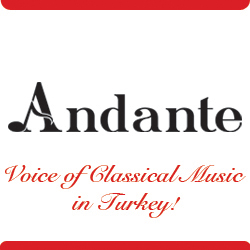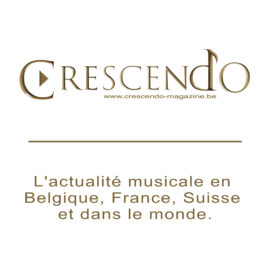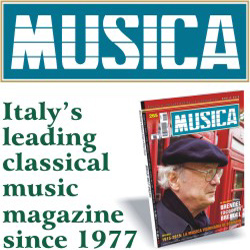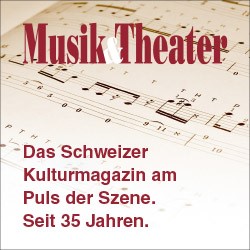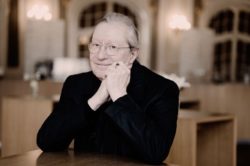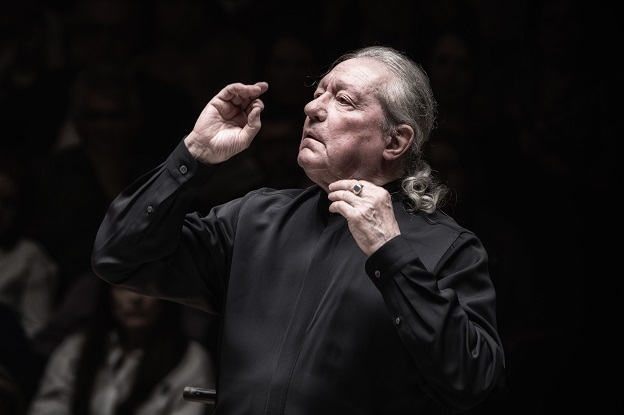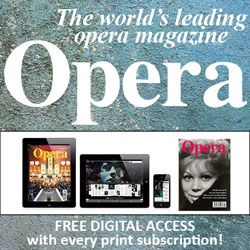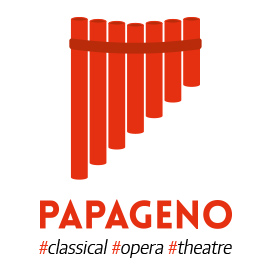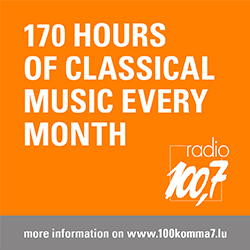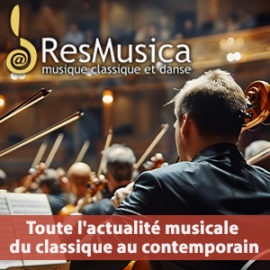ICMA Special Achievement Award winner Sylvain Cambreling has dedicated 50 years to symphonic music and opera, with a particular interest in contemporary music. ResMusica’s Nathalie Filloux met him to discuss the issues of our time.
You defend the great symphonic and operatic repertoire as well as contemporary music, both of which appeal to audiences that are still much divided. Do you see a rapprochement between the audiences for Mozart and Gounod and those for Georges Aperghis or Gérard Grisey?
It’s hard to talk about a rapprochement between audiences, but I would say there is a difference. Some audiences are ready to listen to everything, others are not; some are curious, others are not; some only appreciate today’s music, sometimes more out of snobbery than real interest. It’s not impossible to go from baroque to contemporary, since this is more an intellectual than a musical domain. Some repertoires are easily accessible, others are not. But whatever the period, the composer’s goal is for the music to provoke emotion. Codes and language change, but the function of music, which is to convey ideas through sound, does not. So there’s no reason why the audience can’t come together. In opera, however, there is a specific audience that often only goes to opera, and the same goes for baroque. The same goes for contemporary music, but with a smaller audience. In any case, I accept everyone, all audiences!
You’re a French conductor whose career has been centered in Belgium and Germany, at La Monnaie, Baden-Baden and now Hamburg, like Boulez. How do you see the musical relationship between these two countries? Do they feed off each other, or do they basically ignore each other?
I spent the first ten years of my career in Belgium, then Germany, then Austria, but not exclusively. I also spent a lot of time in Japan and the United States.
In Belgium, I worked mainly in opera, which made up 80% of my repertoire. Belgium’s historical situation places it somewhere between the French and Germanic traditions. Boosmans, for example, is not so much a Belgo-German as an almost-German, with a strong German influence. Belgian audiences are more flexible than Parisian audiences, which means they’re less chauvinistic when it comes to repertoire. As far as I’m concerned, I still have strong ties to Belgium. When I’m there, I like to listen to Musiq3, which keeps me in touch with Belgian musical life and friends.
In Germany, I was in Frankfurt for five years, then at the SWR Symphony Orchestra Baden-Baden and Freiburg for twelve years, and for contemporary music at the Donaueschingen Festival for twelve years, now in Hamburg. I feel at home here, both in terms of repertoire and form. I know the German audience well, it’s the most interesting, and in all repertoires: baroque, classical, romantic, contemporary, and avant-garde. German opera audiences are still somewhat conventional, but not everywhere. German cultural policy is strong and very diverse, with 83 orchestras! There are financial difficulties, as there are everywhere, because of the international situation, but when it comes to cultural policy, music comes first, and that’s still the case, so it counts. Musical life involves a lot of workers, with all the orchestras, and a large public is involved, which arouses real interest.
My concern for the future would be that there are a lot of students in music schools, a lot of potential young musicians, and the question is, what outlets can we offer them?
Our times are marked by great instability, with unpredictable ruptures like the war in Ukraine, which has created a wall with the Russian musical world, and profound changes like the climate. Between opera, symphonic, ensemble music, will all these paths be affected in the same way, or do you think that certain genres, certain types of training will be more adaptable to this environment?
The large ensembles during Covid managed to work and give streaming concerts. Although, of course, chamber music was preferred because it was easier to get a trio together than 80 musicians. I worked a lot with my Hamburg orchestra during that time. It took a lot of hard work and determination, but we were able to find solutions. Those who suffered the most were the opera houses, mainly because of the problems of distance between the musicians, in the pit and with the choirs. Some opera houses have made some attempts to stream their performances, but it has proven to be extremely difficult.
On the question of Ukraine, the problem of the wall that has been erected with the Russian musical world is grotesque and unfair to me. Refusing to play certain Russian composers is stupid. Some Russian artists have expressed their sympathy for Putin, and in such cases it’s understandable that they should be sidelined because you don’t want to work with them, but this has nothing to do with composers in the history of music. You have to make a difference.
As far as the environment is concerned, for several years now we’ve been cutting back on the big international tours that cost a lot of money and take a lot of energy. Orchestras haven’t toured like they used to for about 4 or 5 years. Transportation is a question that can be asked, especially in Europe, where air travel is preferred whenever possible. In Hamburg, with the Hamburg Symphony Orchestra, we’re in an old concert hall from the last century (the Laeiszhalle), and we can see that these issues are more complicated for a modern building like the Elbphilharmonie, where you have to use huge elevators and escalators to get to the concert hall, and which requires a lot of air conditioning.
You shared Gerard Mortier’s life for three decades and were able to take part in his battles to break the shackles of the institutions and open the stages to new directors. Does he have successors today ?
There are only continuators. The method is different, everything has changed. Nowadays, musical institutions are run by people who worked with Mortier, even though there’s no going back and everyone chooses their own path. Mortier’s commitment was also cultural and philosophical. The Mortier revolution in Salzburg continued with Markus Hinterhäuser, trained by Mortier in the 90s, Serge Dorny in Munich, Viktor Schoner in Stuttgart, and not only in opera. Today, there are no longer any curators of the repertoire.
In opera, too, we’ve seen a change in singers. Those who were successful in the 80s are no longer the same. They would have difficulty today, because the aesthetics of singing are different. Back then one did not expect from them to be actors, whereas today’s singers have an education that blends musical, vocal, stage and aesthetic training in equal measure. In terms of the voices themselves, there has been a great deal of change with the revolution in Baroque music. A lot of Baroque singers with small, flexible voices have gone on to very successful careers. Of course, even if they’re not the same voices as in Romantic music, there’s no prohibition for singers, no barrier between different styles. For instrumentalists, it’s different and obviously easier, because they can adapt their technique and change instruments. Countertenor has become commonplace, whereas in the early 80s there were only a few. Today, it’s possible to make a career with this type of voice, for which there’s a real public craze.
You were awarded an ICMA Special Achievement Award in recognition of your career achievements. What is your dream for the music and musicians of today and tomorrow?
What’s special about my career is that I have a huge repertoire ranging from Baroque to contemporary. I’ve done a huge number of creations, around 300 to 350 over the course of my career. I work like a dramatist, trying to relate the works to each other in the creation of programs. So it’s not just about having a clean, careful reading, which I also try to have. I’m a man of the theater, even if I no longer direct opera and devote myself exclusively to the concert repertoire.
I believe that the money invested in concerts – and there are a lot of them – should have an impact on people’s daily lives. Because music is an indispensable element of balance, allowing us to evacuate or store emotions, and to share them with people. It allows us to speak to everyone without the need for words.
I’ve been linking classical and contemporary works (XXth century then XXIst) for 50 years. For example, recently I devised a program featuring Verdi’s Requiem, at the same time as Galina Ustvolskaya’s Dies irae for 8 double basses, 1 piano and 1 wooden cube! This confrontation allows us to hear Verdi’s Requiem in a different light. In Japan, where I’ve just returned from, I performed Martinů Mémorial pour Lidice (in memory of the massacre of this Czech village by the Nazis), Bartók’s Violin Concerto No. 2, and Messiaen’s L’Ascension in the same program. In my opinion, the repertoires illuminate each other, and the emotions are different each time.
I find that many young composers are composing too quickly and too thoughtfully, and that the pieces sound too much alike.
The reason for this can be found in contemporary music festivals, where there is a proliferation of commissions in order to have more and more new works, but this also implies a risk of being performed only once. There’s a desire to consume too much, like everywhere else. Play something, move on to something else, fast. Of course we have to help these young composers, but we also have to give them time. Of course, I also place commissions. For example, at the end of June I commissioned two premieres (by Lisa Streich and Philipp Maintz) with the Cologne Radio Orchestra (WDR Funkhausorchester Cologne). I’m always on the lookout, and always trying to give meaning to what I do.


